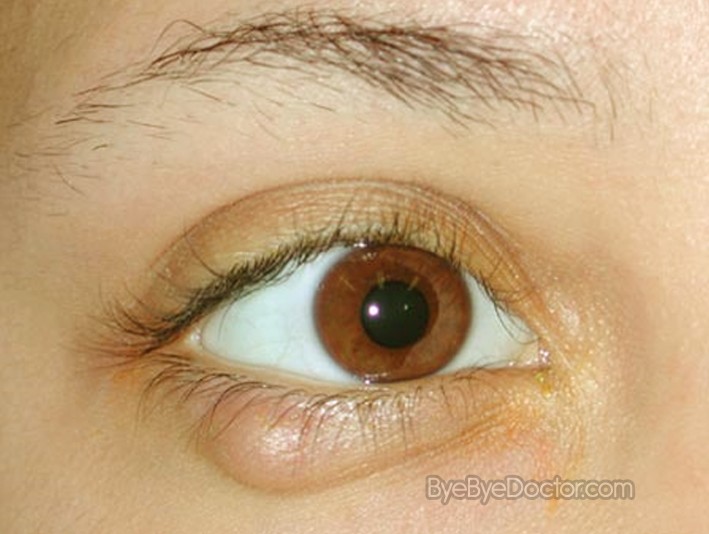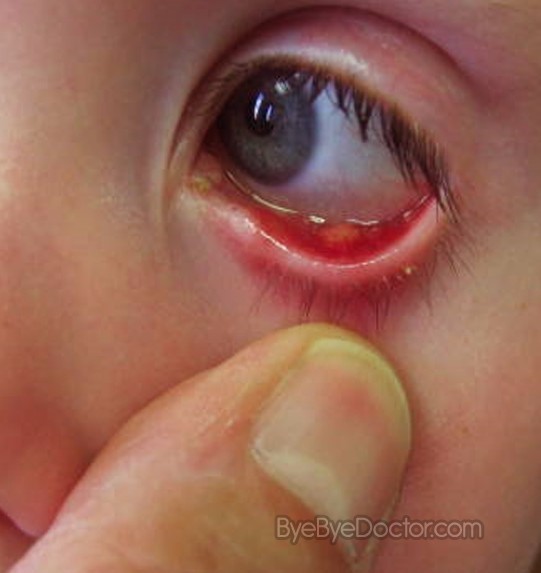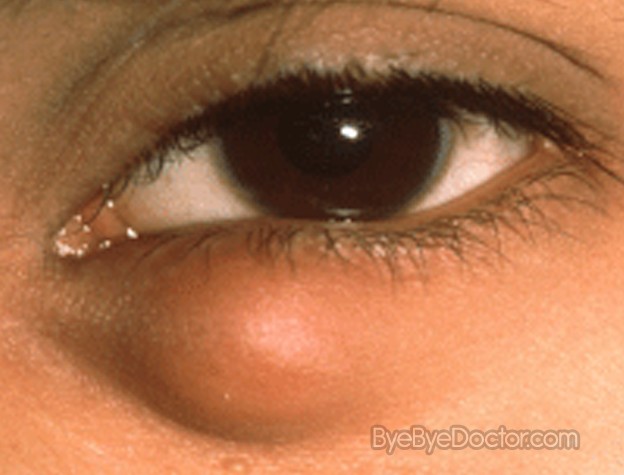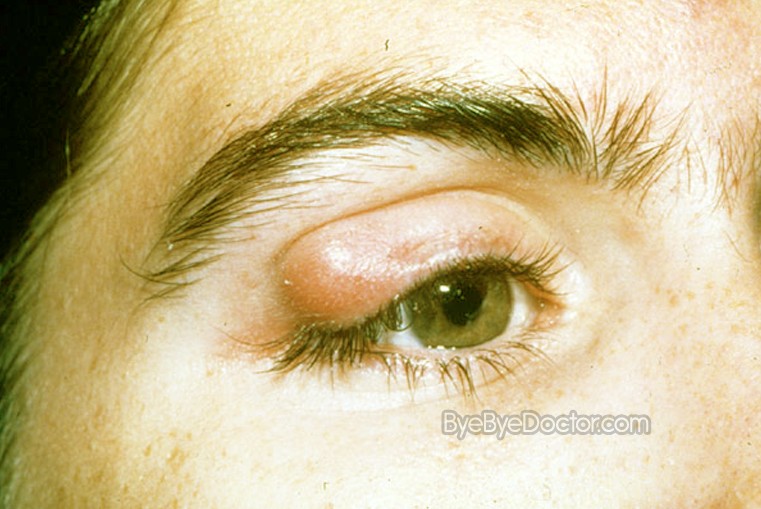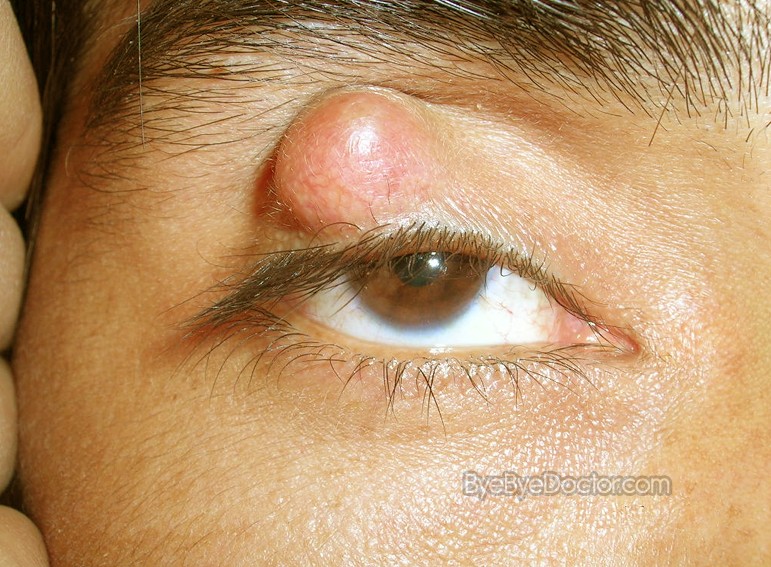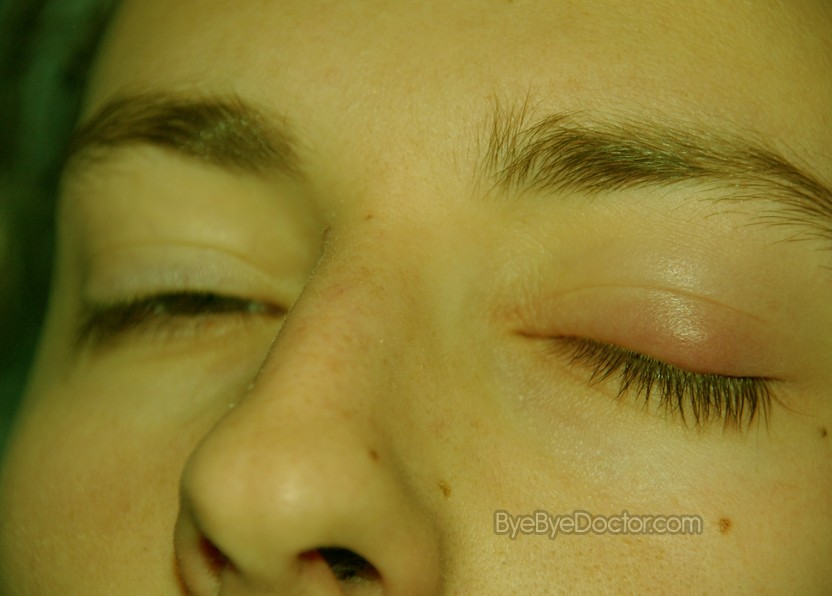What is a Chalazion?
This is a problem on the eyelid which causes a small bump along the edge of the lid. This bump can gradually increase in size over days to weeks as well as may occasionally become warm, red or painful. They are caused by the blockage of an oil gland which is very tiny. They may be annoying or painful, but are rarely serious. Most of them will go away by themselves over time without any treatment.
These bumps can be related to blepharitis which is a common problem which creates inflammation of the eyelids.
Chalazion is also known as a meibomian gland lipogranuloma. A chalazion cyst can take months to heal fully with treatment and could often take years to heal without any major problems.
The tiny gland which is involved in the creation of a chalazion is an altered oil gland which lies within the eyelid. There are normally about 40 of these type glands within each of lower as well as upper lids. These glands are ones that discharge oil into the tears. Once one of these glands becomes clogged, it increases in size as well as cause the visible lump.
Chalazion Symptoms
A chalazion grows more slowly than styes do and if the chalazion becomes large enough, it can interfere with vision as the lump or cyst is very firm and is under the skin of the eyelid. The inflammation as well as the swelling can spread to adjacent areas surrounding the eye. Symptoms of this problem include:
- Eyelid tenderness
- Increased tearing
- Swelling which is painful located on the eyelid
- Sensitivity to light
- Heaviness of the eyelid
If the obstructed gland has any bacteria in it, the gland can become infected. This is called a hordeolum and does resemble a pimple. A hordeolum can be very tender to touch.
Chalazion Causes
Chalazion grows on the eyelids in the glands which produce the fluid which lubricates the eye. These are known as Meilbomian glands. They are these glands located up and down the eyelid located near the eyelashes. A chalazion is triggered by the gland oil becoming so thick it is unable to flow out of the gland or the opening of the gland becomes obstructed. Not having anywhere to go, the oil builds up inside this gland and develops a lump/bump in the eyelid. The wall of the gland can break, letting the oil into the eyelid causing inflammation and often scar tissue.
With a diagnosis of chalazion, it becomes very important to know whether there is any underlying condition which caused the chalazion. Often there are other medical problems which can possibly cause chalazion. A chalazion is normally secondary to some other local inflammation or local infection such as a stye. Some are caused due to a residual aggregation of inflammatory cells after an eyelid infection such as hordeola as well as preseptal cellulitis.
There are cases of chalazia which are recurrent frequently due to chronic blepharitis or basically poor hygiene of the eyelids.
All the above will ultimately lead to inflammation of the meibomian gland that the blockage of the duct which drains the gland.
Those individuals with rosacea, described by redness of the face and puffed-up bumps under the skin – papules as well as pustules – are apt to have definite eye problems such as blepharitis as well as chalazia which are the plural of chalazion.
Rosacea can upset the eyelids, the eye’s skinny outer membrane (conjunctiva), the whites of the eye (sclera) and the clear eye surface (cornea). These indicators of rosacea on the eye communally are mentioned as ocular rosacea. Reasons for rosacea itself can be very hard to identify, although inherited tendencies as well as environment are probable factors.
Chalazion Prevention
To help prevent chalazia:
- Do not rub your eyes. This can not only irritate your eyes but also let in bacteria. If you need to touch the eyes, wash your hands prior to doing so.
- Exchange eye makeup, particularly mascara, every 6 months. Bacteria can grow in makeup.
- Treat any inflammation or infection of the eyelid promptly. If you get chalazia or styes often, wash your eyelids regularly with some baby shampoo mixed in warm water.
Properly cleaning the eyelid can prevent this condition from returning in individuals who are prone to chalazia. Cleaning the eyelash area with baby shampoo can help reduce clogging of the ducts.
http://www.Symptoms-Causes-treatment.blogspot.com detect diseases at an early stage symptoms, and find out the causes and treatments best suited.
Chalazion Treatment
Medical treatment of the chalazion normally includes the following:
- Apply warm compresses for 5 to 10 minutes, 4 times a day, to reduce the swelling as well as encourage drainage of the gland.
- The physician will prescribe antibiotic eyedrops or ointments to prevent any bacterial infection to develop.
- An injection of steroid medication in the area of the lump can help to decrease the inflammation
If the chalazion causes symptoms which lasts for weeks, it may need to be removed surgically. If the swelling last more than a few weeks or causes symptoms of mild blurring of vision, it is probably best for an ophthalmologist to perform surgery to remove the chalazion.
Chalazion Surgery
Depending on the size of the chalazion, it can be removed by surgery. The operation may be done as a procedure in day surgery meaning that the individual goes home on the same day as the surgery.
This operation is done under local anesthetic, applied with a small injection into the eyelid which makes this area to be operated on numb – this is the same kind of anesthetic that the dentist uses when working on your teeth. The individual will feel that there is something being done in the area but the individual will not feel pain.
Often another anesthetic cream is applied locally in order to minimize any discomfort caused by the injection.
If the chalazion is fairly small, it will normally be removed thru a tiny cut at the back of the eyelid. The eyelid is then lifted so that the surgeon can have access to the back surface of the eyelid and a tiny cut of about 3mm is made on top of this chalazion.
Then the lump is removed and pressure is applied for several minutes to cease any blood oozing that can occur.
There is normally no need for stitches and because the cut is at the rear of the eyelid, it does not show so the cosmetic results are good.
On the other hand, if the chalazion is large and pushing on the skin of the eyelid then usually it is removed thru a very small cut in the front of the eyelid thru the skin. Again, the cut is about 3mm and is on the top of the chalazion.
After removing the lump, pressure is applied again to stop any oozing of blood. The cut is then closed with extremely fine – hardly visible – stitches that provide an excellent cosmetic result after they are removed which is normally in 5 to 7 days.
The lump which is removed normally goes to the lab to be checked under a microscope as rarely it can be a place for cancer to be growing.
Chalazion Cost
The cost of this surgery differs from country to country. The price in India with the Medical Tourism market is very reasonable with reports of outstanding care from the physicians, surgeons and nursing staff.
Chalazion Recovery Time
After this surgery, the recovery is normally painless. Individuals who do experience some minor discomfort can take OTC pain medication. The individual is advised not to get any water in the eye for up to 10 days as well as to avoid makeup for a month after surgery. Eye drops will be prescribed to prevent any swelling or infection. The eye is covered with an eye plastic shield which can normally be removed after 8 hours. Those individuals who are contact wearers are told to wear glasses for up to 8 weeks before going back to contact lenses. They can go back to work in 1 to 2 days and can drive the day after the surgery.
Chalazion Pictures
